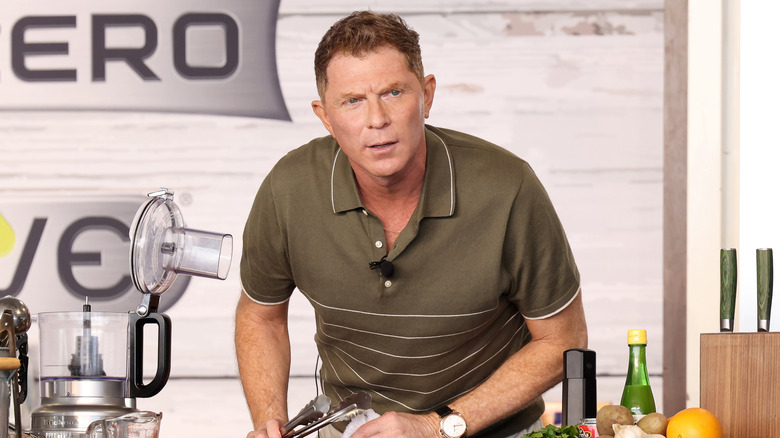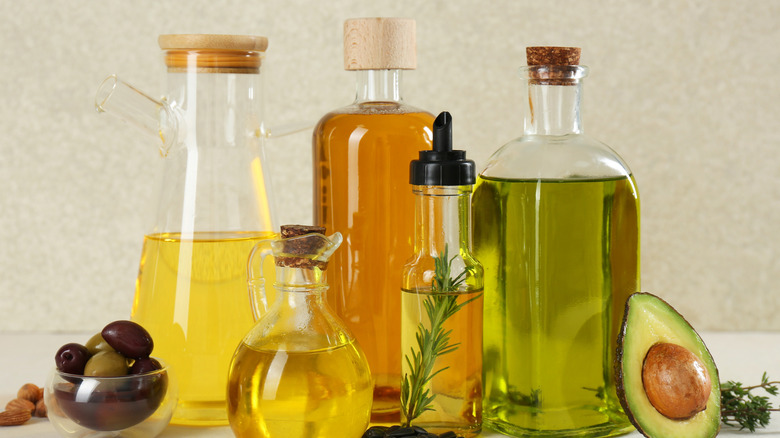Bobby Flay's Go-To Oil For Delicious Pasta Sauce
Olive oil is a kitchen staple. But when chef, long-time Food Network star, and restaurateur Bobby Flay heats up his stove, he reaches for avocado. In 2023, he told Food & Wine that avocado oil, not olive, is his go-to cooking oil. He likes the high smoke point and neutral flavor, which lets aromatic ingredients shine in dishes such as rich pasta sauces.
"I don't usually cook with extra virgin olive oil, especially for a long period of time," he explained during a 2008 demonstration (via YouTube). His reasons are that the oil has "got a high viscosity, it's thick," and "the burning point is quick, so you don't want to create any bitterness in the olive oil." Neutral, high-heat avocado oil highlights pasta sauce's fragrant stars, like onion and garlic. And you can use it whether you're making your own sauce or upgrading jarred pasta sauce with extra ingredients.
It's important to know the smoke point of different oils because it determines what they can be used for when cooking. Extra virgin olive oil starts to smoke at around 325 degrees Fahrenheit. That'll work fine for many applications, but it's easy to overheat, and there's more chance of it burning and becoming bitter-tasting when you're cooking your pasta sauce. Avocado, on the other hand, has the highest smoke point of any standard cooking oil, withstanding temperatures of up to 520 degrees.
The perks of using two oils for pasta sauces
Avocado oil is a neutral oil, and for Bobby Flay, that's a perk. "It's got almost zero flavor, and that's a good thing," he explained in a video on @misfitsmarket's Instagram account. But just because you're using a neutral oil doesn't mean you have to skimp on flavor. Flay still likes to add a little olive — but he uses it as a finishing oil, not a cooking oil. "Extra virgin olive oil you should splatter over greens, or over a piece of grilled fish," he told viewers (per YouTube). And it's just as delicious drizzled over a pasta dish before serving to add richness and flavor.
You might've heard that you should use low-sodium products when cooking, which means you can add as much salt as you want without worrying about oversalting. The same principle applies: Instead of limiting you, a neutral oil gives you more control. Olive oil can still be the flavorful star of the show when it comes to pasta dishes, it'll just be the grand finale, with avocado playing more of a role in the actual cooking process.
Avocado oil can be pricey — especially for those of us who aren't living on a Food Network star salary — but there are some other options that won't break the bank. Historically, Flay has often used canola oil for cooking, though the chef has said on Instagram that he "kinda went away from the canola oil" in favor of avocado. There are other alternatives, too: As well as canola, Flay recommends using peanut oil and vegetable oil for cooking.

